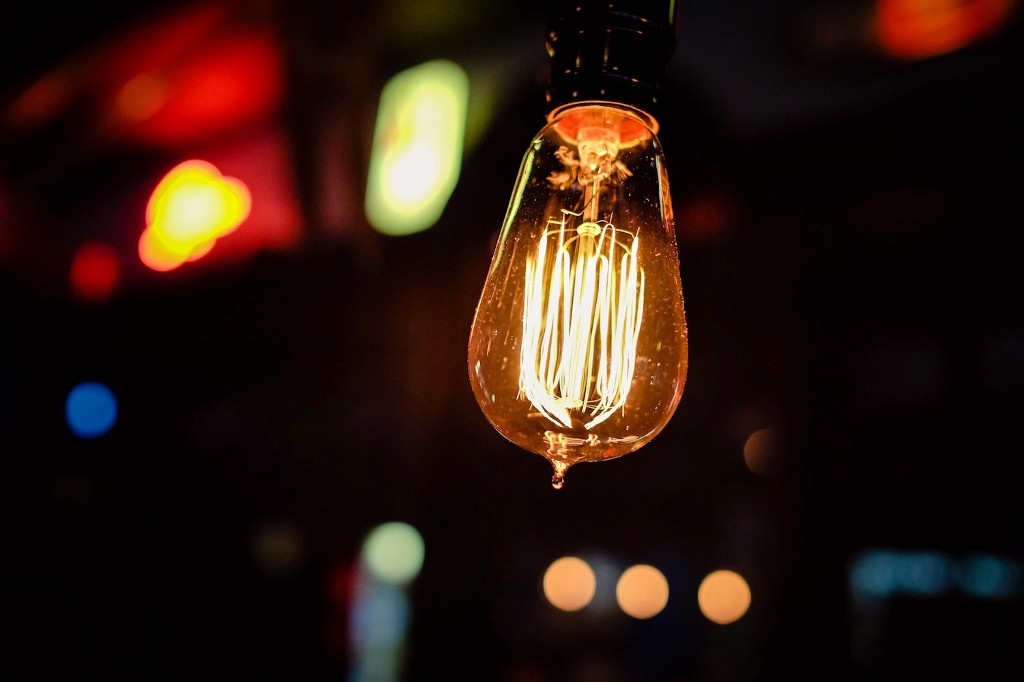Hello ImpactAlpha readers!
#Featured: Open Mic
Operation Impact: Four practical innovations from impact investing problem-solvers. The Case Foundation’s Rehana Nathoo kicks off a four-part series on ImpactAlpha to share lessons learned in changing investment culture, practice, expectations and habits to enable a new level of impact. Over the next month or so, we’ll feature pieces from Acumen, Bridges Fund Management, and ImpactSpace, ImpactAlpha’s open impact database.
Nathoo, the Case Foundation’s vice president of social innovation, shares how the foundation is creating a culture of transparency among impact investors and entrepreneurs. The problem: lack of visibility into where impact capital is flowing and to whom. The solution: the #ShareYourData campaign and the Impact Investing Network Map, a showcase for data that can educate and activate more impact investors.
Read, “Culture of transparency: Putting impact investing on the map,” by the Case Foundation’s Rehana Nathoo, on ImpactAlpha:
Culture of transparency: Putting impact investing on the map
#Dealflow: Follow the Money
CoPower raises C$2 million for clean-energy bond platform. CoPower offers green bonds for everyday Canadian investors to invest in community clean energy and building retrofits across North America. It mitigates risk by investing in revenue-generating projects. Stéphan Morency at Fondaction CSN, a Montreal-based pension fund, said CoPower’s crowd-financing approach fills a capital gap. “We’ve seen first-hand what a challenge it is for these clean energy projects to access financing,” he says. Since its launch in 2013, CoPower has raised C$12 million ($9.6 million) for lending, and currently has two green bonds open for investment. In addition to Fondaction CSN, CoPower’s latest equity funding round was backed by the Royal Bank of Canada and others. The round also includes a $1 million revolving credit facility from Vancity Capital Corporation.
New financing for 1mg Technologies’ prescription-drug comparison platform. Prices for prescription drugs vary widely in India, even for generics, and most Indians pay out of pocket for their healthcare costs. That makes Gurgaon-based 1mg Technologies a popular service. The 1mg app, formerly called HealthKartPlus, has been downloaded more than nine million times (and got a big word-of-mouth boost from messaging service Whatsapp.) The company claims to have 65 million page-views per month. The company raised $15 million in its latest round, led by Swiss healthcare investor HBM Healthcare Investments, with backing from Omidyar Network, Sequoia Capital, Kae Capital and Maverick Capital Ventures. Last year, 1mg raised a $16 million Series B round.
OpenInvest adds human trafficking robo-investment theme. The new filter features 20 companies that “demonstrated the highest commitments to fighting forced labor in their supply chains,” as identified by non-profit JUST Capital. In June, OpenInvest pointed its digital investment platform toward refugee inclusion. OpenInvest now features 11 social investing themes. It launched its “Human Rights in the Supply Chain” filter on U.N.’s World Day Against Trafficking in Persons.
See all of ImpactAlpha’s recent #dealflow.
#Signals: Ahead of the Curve
Tech-driven water, energy and waste efficiency. Impact Engine, an early-stage investor in Chicago, shared lessons about resource efficiency from its portfolio of about three dozen “impact tech” startups. (An earlier article highlighted investable opportunities in economic empowerment.) Take Measurabl, a San Diego startup that helps commercial real estate owners collect and manage the environmental impacts of their buildings. By benchmarking other subscribers, the app pinpoints opportunities to save energy. Earlier this year Impact Engine participated in a $2 million round for Full Harvest, which is creating a market for “ugly” produce in order to reduce food waste. Other firms are using drones and satellites to optimize water and fertilizer use on farms. The water crisis in Flint, MI, as well as droughts and water shortages, highlight opportunities for efficiencies in the $600 billion water industry. Water startups are taking on conservation and water quality with smart meters and monitoring technologies. Impact Engine also sees investment opportunities in marketplaces for alternative energy sources, as well as energy storage, installation, and management.
Bonus #Signal: U.S. wind projects under development are up 40% over this time last year.
#2030: Long-Termism
Building Africa’s Great Green Wall. The New York Times reports that Africa is losing fertile farmland to growing population, overproduction and drought. By 2045, population growth and climate change are likely to exacerbate the competition for scarce resources. Water scarcity could be a key driver of conflict — basins that cross national boundaries account for 90% of Africa’s surface water (the Congo Basin alone spans 10 countries). In the next three years, desertification is expected to send more than 60 million people from sub-Saharan Africa to North Africa and Europe, many dying along the way.
The Great Green Wall could reduce that number. The $8 billion effort is a “wall” only in the sense that it is intended to keep desertification of sub-Saharan Africa at bay by restoring degraded land, boosting food security and supporting local communities in adapting to climate change. Supported by the World Bank, the European Union, international donors and development organizations, the planned belt would stretch around 4,000 miles from the Senegal to Djibouti, in an attempt to keep the Sahara from expanding. Originally envisioned as a wall of trees on the edge of the desert, the “wall” is now a collection of projects that together attempt to combat desertification.
Sustainable Development Goal №15 calls for “land-degradation neutrality” by 2030, by combating desertification, and restoring degraded land and soil, including land affected by desertification. A recent symposium in Ouagadougou, Burkina Faso, called for partnerships to create two million land-based jobs through the rehabilitation of 10 million hectares of degraded land. “Imagine what could happen if each of you committed to rehabilitate 100,000 hectares of land in your respective countries,” said Monique Barbut, executive secretary of the UN Convention to Combat Desertification, “…if young people in Africa were given the chance to bring that natural capital back to life and into production.”
Onward! Please send any news and comments to [email protected].











